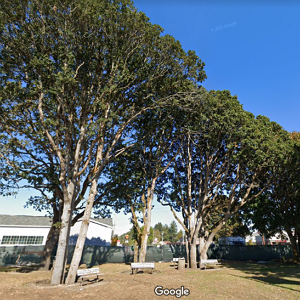 The City of Lakewood is proposing to up-light the Garry oak trees adjacent the Colonial Plaza. This means putting lights under the trees, so as to create a cool, night-time effect. Unfortunately those making the proposal seem mainly concerned with surface appearances, and haven’t fully considered the science.
The City of Lakewood is proposing to up-light the Garry oak trees adjacent the Colonial Plaza. This means putting lights under the trees, so as to create a cool, night-time effect. Unfortunately those making the proposal seem mainly concerned with surface appearances, and haven’t fully considered the science.
As we know, a major problem of modern living is light pollution. It is not just about not being able to see the stars, but it is also about the disruption of natural rhythms.
William Chaney, from Purdue University, wrote an article titled “Does night lighting harm trees?”. He pointed out that light effects both photosynthesis and photoperiodism – photoperiodism being the role of day length in growth and reproduction.
Chaney discussed some of the variables. Clearly the negative impact of the light is going to be worse if it is on all night rather than some of the night. You also have to consider the type of light – fluorescent, mercury vapor and metal halide lights have low impact, while incandescent and high pressure sodium are high impact.
There is also the question of where the lights are, and up-lighting should definitely be avoided. In fact, Chaney states “In all cases, up lighting and shining light over great horizontal distances should be avoided”.
So the City needs forget the up-lighting, because it is no good for the trees.
I should also mention the animals, including nesting birds, that would suffer because of the light pollution.
Finally, I think that there is something quite perverse about the idea of lighting up the Garry oaks. The City wants to give the impression that it cares about this special tree, yet in the process of signally its virtue it is damaging the very thing it is claiming to love and protect.
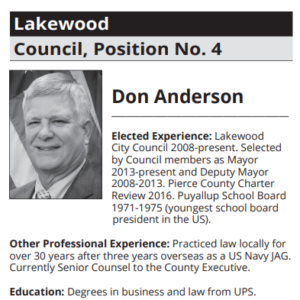 Former Lakewood mayor Donald Anderson is an unpleasant bully, but that doesn’t excuse the spineless fawning of three of the City’s council members.
Former Lakewood mayor Donald Anderson is an unpleasant bully, but that doesn’t excuse the spineless fawning of three of the City’s council members. Victoria Woodards is the mayor of Tacoma, and she has a theory of leadership that comes straight out of the playbook of the Soviet politburo. When justifying the unanimous votes that had come to characterize the Tacoma City Council, she remarked “A 4-5 or 5-4 vote is politics, a 9-0 vote is leadership”. If you look at the video, note the self-satified smile when she’d made her point, as if she has just elevated political craft to a new level of excellence. Thank you to Tacoma activist Melissa Knott for provoking Victoria Woodards into making such a ridiculous comment.
Victoria Woodards is the mayor of Tacoma, and she has a theory of leadership that comes straight out of the playbook of the Soviet politburo. When justifying the unanimous votes that had come to characterize the Tacoma City Council, she remarked “A 4-5 or 5-4 vote is politics, a 9-0 vote is leadership”. If you look at the video, note the self-satified smile when she’d made her point, as if she has just elevated political craft to a new level of excellence. Thank you to Tacoma activist Melissa Knott for provoking Victoria Woodards into making such a ridiculous comment. Lakewood’s new mayor, Jason Whalen (with the scissors), has initiated a “Community Coffeehouse”, which meets every other month. The last meeting was on March 24, at Fort Steilacoom Park’s pavilion, and its subject was public safety.
Lakewood’s new mayor, Jason Whalen (with the scissors), has initiated a “Community Coffeehouse”, which meets every other month. The last meeting was on March 24, at Fort Steilacoom Park’s pavilion, and its subject was public safety.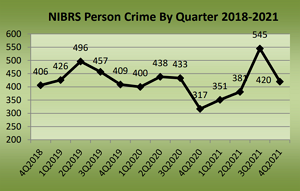
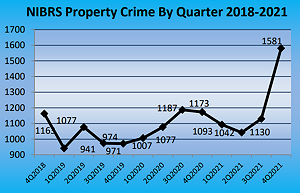
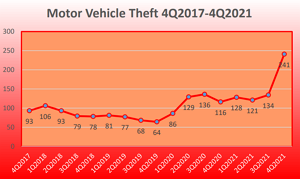
 Something is rotten in the City of Lakewood, and one aspect of the rot may be the lengthening tenure of members of the City Council.
Something is rotten in the City of Lakewood, and one aspect of the rot may be the lengthening tenure of members of the City Council.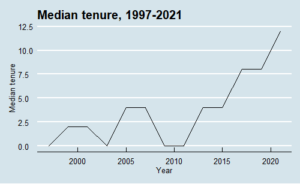
 In Lakewood the mayor and deputy mayor are not directly elected. They are chosen by the City Council. So when Donald Anderson stood down as mayor, the council chose a replacement, who was Jason Whalen, the deputy mayor.
In Lakewood the mayor and deputy mayor are not directly elected. They are chosen by the City Council. So when Donald Anderson stood down as mayor, the council chose a replacement, who was Jason Whalen, the deputy mayor. British politician Enoch Powell wrote that “All political lives, unless they are cut off in midstream at a happy juncture, end in failure, because that is the nature of politics and of human affairs”. And with Donald Anderson’s announcement that he is standing down as mayor of Lakewood, yet another political life bites the dust.
British politician Enoch Powell wrote that “All political lives, unless they are cut off in midstream at a happy juncture, end in failure, because that is the nature of politics and of human affairs”. And with Donald Anderson’s announcement that he is standing down as mayor of Lakewood, yet another political life bites the dust. Lakewood City Council has seven members, and this year, 2021, four of them were up for re-election. Not surprisingly, no one lost their seat.
Lakewood City Council has seven members, and this year, 2021, four of them were up for re-election. Not surprisingly, no one lost their seat. Many people in Lakewood are are dismayed by the City Council’s relentless unanimity. We see the seven members of the council appearing to act as a mutually-admiring monolithic block.
Many people in Lakewood are are dismayed by the City Council’s relentless unanimity. We see the seven members of the council appearing to act as a mutually-admiring monolithic block.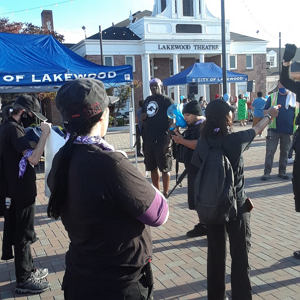 Last year, on May 1, Said Joquin was shot dead by Lakewood Police. He had run a stop sign, and Officer Michael Wiley killed him. At this stage I don’t want to go into details, but when I get the information I’ll give
Last year, on May 1, Said Joquin was shot dead by Lakewood Police. He had run a stop sign, and Officer Michael Wiley killed him. At this stage I don’t want to go into details, but when I get the information I’ll give  As a foreigner, coming from a country with some of the strictest gun control laws in the world, it was a strange scene. The Panthers, in combat gear, were open carrying rifles and pistols, and were almost treating the thing as a military operation. The police sergeant was discussing politics with them, in a way that was measured and civilized. He even sugggested, if I heard him right, that some of the Panthers could best serve their community by themselves joining the police.
As a foreigner, coming from a country with some of the strictest gun control laws in the world, it was a strange scene. The Panthers, in combat gear, were open carrying rifles and pistols, and were almost treating the thing as a military operation. The police sergeant was discussing politics with them, in a way that was measured and civilized. He even sugggested, if I heard him right, that some of the Panthers could best serve their community by themselves joining the police.